
Psychedelics Today
Psychedelics Today
- 1 hour 11 minutesPT545 – Breathwork, Holding Space, and the Healing Power of Connection: Documenting the Dreamshadow Community, with Mustapha Khan
In this episode, Kyle interviews Mustapha Khan: Emmy Award-winning director with over 100 film and television credits, who has worked with clients such as Coca-Cola and Honda, and celebrities ranging from Maya Angelou to Snoop Dogg.
Khan is finalizing a film about Lenny and Elizabeth Gibson and their ongoing work at Dreamshadow – the people and community responsible for Joe and Kyle meeting and the creation of Psychedelics Today. He talks about meeting the Gibsons, being welcomed into their community (instead of his proposed “fly on the wall” role), how centered and happy he felt after his first breathwork session, and what he has learned through the process: that breathwork can be an incredibly healing modality, but the magic he has found has been more in the community surrounding it, and the responsibility (and honor) of being a sitter for someone else.
He discusses:
- The first time his breathwork went psychedelic, and speaking with his recently deceased Mothe
- How he got into filmmaking and why he wants to tell stories about people like the Gibson
- The beauty of breathwork not having a dogma or doctrine attached to it
- The power in holding space for someone else, even if it’s just being presen
- The importance of taking action that aligns with psychedelic ethos: What can you do to contribute to your community?
and more!
Khan is hoping to release the documentary, “Life and Breath,” in October. In addition to a screening at Dreamshadow, PT will likely do a virtual one as well, so stay tuned for updates!
6 September 2024, 5:15 pm - 1 hour 4 minutesPT544 – Psychedelics and Addiction Recovery: Microdosing and Redefining the Path to Sobriety, with Danielle Nova
In this episode, Joe interviews Danielle Nova: founder of Psychedelic Recovery, founding team member of Decriminalize Nature Oakland, and Executive Director of the San Francisco Psychedelic Society.
As a recovering addict, Nova discusses how working with psychedelics helped her find her way to recovery, and how she's spreading that knowledge to others through her Psychedelic Recovery program, which focuses more on 'targeted abstinence,' instead of the total abstinence model of Psychedelics In Recovery (which works alongside AA's 12-step program). She believes that it's extremely important to reframe addiction as a life process or temporary state of consciousness (rather than a life sentence you can't escape), and that beating addiction is not about constantly being afraid of a relapse, but about evolving to a state of empowerment: that you can overcome it, and that actually, a horrific addiction may have saved you and brought you to where you're supposed to be.
She discusses:
- The complications of Western medicine and the impact of conflicting medications that are nearly impossible to stop taking
- How self-regulation of tough emotions with outside stimuli (be it drugs, pornography, or even video games) trains people to rely on external forces rather than themselves
- How addicts end up programing themselves with 'addict consciousness,' and the power of changing one's mind state to view suffering as the fuel for a new purpose
- How, over time, we will likely start viewing microdosing as a regular dose, and the large doses we're used to will be seen as overdosing
- How being part of her ayahuasca experience (and having one himself) completely changed her father's perspective on drugs and addiction
and more!
She has co-created Microdosing Facilitator Training with Adam Bramlage of Flow State Micro: a first-of-its-kind 4-month program teaching clinicians, facilitators, and coaches about microdosing and how to safely guide others through the practice. The next cohort launches in January 2025.
3 September 2024, 8:55 pm - 1 hour 18 minutesPT543 – Empathy and Agency: Why Psychedelic Practitioners Need to be Trauma-Informed, with Deanna Rogers
In this episode of Vital Psychedelic Conversations, David interviews Deanna Rogers: Registered Clinical Counselor and Vital instructor.
She discusses how trauma grows in our bodies, and the importance of practitioners and facilitators becoming trauma-informed before working with clients. She stresses the need to create the right conditions for clients to be able to work with trauma – to bring compassion to the different parts of their self and build a relationship with the uncomfortable ones, to interrupt negative narratives, and to learn how to exist in a place where they can embrace their window of tolerance and explore discomfort in a safe way. What is the specific container and pace each client needs? How flexible is their nervous system to be able to work with these states? What can be done to bring out the empathetic witness in themselves? And most importantly, how can their sense of agency be improved so that they feel like they’re fully in control of how deep things go?
She discusses:
- Her early ayahuasca experiences, and her path toward working with others, including working with Gabor Maté and Peter Levine
- How psychedelics allow us to access our irrational, animal parts, and how this work is often a combination of sacred and messy
- The need for facilitators to have a basic understanding of the nervous system and fight or flight reactions
- Moving away from the idea of: “There’s something wrong with me.” What do these chronic narratives do to our bodies?
- Working with clients to build out the capacity of their nervous system first, before working with any trauma
and more!
Rogers is one of our Vital instructors, featured in one of Vital 4’s new Specializations: Somatics & Trauma. This cohort begins on September 17, and the application deadline is next week, September 3, so apply today before it’s too late! For links, head to the show notes page.
30 August 2024, 11:00 am - 1 hour 2 minutesPT542 – The Illinois CURE Act: Shaping the Future of Psychedelic Policy, with Jean Lacy & Representative La Shawn K. Ford
In this episode, Joe interviews Jean Lacy: Executive Director of the Illinois Psychedelic Society; and La Shawn K. Ford: 17-year member of the Illinois House of Representatives, representing the 8th District.
Together, they are working on the CURE (Compassionate Use and Research of Entheogens) Act, which aims to decriminalize plant medicines and bring a state-regulated model for psychedelic use to Illinois. Similar to Oregon's model, but with hopefully a more cohesive ecosystem, it would include service centers, different license types, the removal of psilocybin and psilocin from the controlled substances list, and a percentage of taxes allocated to education of first responders and law enforcement. Guided by the mistakes of cannabis legalization, they're putting a lot of focus on accessibility – not just for consumers, but for people trying to get licenses and open businesses. What does equity and inclusion look like in a psychedelic service model?
They discuss:
- The need to educate lawmakers about psychedelics and shine a light on the myths and lies of the Drug War
- The importance of understanding the process and doing the work when working with lawmakers: When it's done right, democracy can actually happen
- Why conversations about accessibility and certain provisions need to happen up front, as bills are being written
- The impact of bipartisan support, and how bipartisan psychedelics are starting to become
- The overwhelming support for the CURE Act that Rep. Ford has seen, from people of all walks of life
and more!
If you want to help, please sign their petition and/or make a donation. And if you want to help on a larger scale, get out there and have those conversations: Tell your story, and tell it to lawmakers. Your voice can make a bigger difference than you realize. For links, head to the show notes page.
27 August 2024, 4:51 pm - 51 minutes 56 secondsPT541 – Regenerative Economics and Psychedelics: Creating More Connected Leadership, with Rachelle Sampson, Ph.D. & Bennet Zelner, Ph.D.
In this episode of Vital Psychedelic Conversations, David interviews Rachelle Sampson, Ph.D.: researcher and founder of Blue Prism Coaching; and Bennet Zelner, Ph.D.: researcher, speaker, and creator of the Pollination Approach. They are both Vital instructors and Associate Professors at the Robert H. Smith School of Business, University of Maryland.
Based on a passion for regenerative economics (how we might be able to apply patterns of nature to socioeconomic systems), they are co-leading the Connected Leadership Study, a research project tracking how psychedelic experiences can facilitate change in people in leadership positions. They believe that a shift from a mechanistic attunement to a more synergistic recognition of our interconnectedness should lead to new ways of thinking, resulting in more creative leaders with better decision-making and team-building skills, and corporate culture caring more about values, regenerative models, equity, and sustainability – all while still being successful. They wonder: Can psychedelic experiences create better leaders? Can capitalism become more conscious?
They discuss:
- The structure of the study, what they learned in the first cohort, and why they track participants for a yea
- How change happens over time, and why they believe it to needs to happen from the bottom u
- The concept of emergence and emergent change illustrated by the shifts in movement of a flock of bird
- How synergistic attunement can be traced back to the cellular level
- The challenge of balancing the therapeutic aspect of psychedelics with the more corporate strategy/professional side
and more!
The study’s next cohort begins in October, so if you’re a business leader interested in being a participant, head to Leaders.study for more info. And if you’d like to learn more about these concepts, the new Regenerative Business and Leadership specialization path in this year’s cohort of Vital digs deep into this world. And we’ve just extended the applications to Sept. 2, so you still have time to apply! For links, head to the show notes page.
23 August 2024, 3:53 pm - 44 minutes 57 secondsPT540 – Ancestral Teachings for the Psychedelic Renaissance, with Alonso Del Río & Francisco Rivarola
As the psychedelic renaissance continues to spread throughout the West, we learn more about these substances and experiences every day. But are we losing the important ancestral teachings and Indigenous knowledge that got us here?
In this episode, Kyle interviews Alonso Del Río: author, musician, filmmaker, founder of the Center for Healing and Consciousness Studies (Ayahuasca Ayllu), and facilitator with 45 years of experience largely under the framework of the Shipibo tradition.
Together with translator, Francisco Rivarola, they have developed a course called “Ancestral Teachings for the Psychedelic Renaissance,” which aims to be both an honoring of knowledge that has safeguarded these traditions, and a bridge between that wisdom and our Western frameworks, teaching ancestral traditions (largely Shipibo and Incan-Peruvian), the roles and function of dietas, the less talked-about dangers of brujeria (witchcraft), holistic frameworks for dealing with mystical experiences, and the connection between spirituality and responsibility towards nature. The course features 20 hours of Del Río’s teachings (with subtitles) and is the first time they’ve been made available to the general public.
He talks about:
- The importance of following guidelines when working with ayahuasca, and how Westerners often don’t respect the rigor required to do it right
- The different types of healers in the Shipibo tradition, from good and bad to the “Ascended Master,” who transcends physical limits and is incapable of causing harm
- The potential for ayahuasca to be weaponized, how often this happens, and the risks for Westerners who aren’t aware
- How the consciousness level of a person can be related to the emotions that that person allows themselves to have
- How the expansion of consciousness is healing in itself
and more!
Ancestral Teachings for the Psychedelic Renaissance is a self-paced course that can be taken at any time, so if you’re interested, take advantage of early bird pricing and check it out in the Psychedelic Education Center now! For links, head to the show notes page.
20 August 2024, 5:00 pm - 1 hour 8 minutesPT539 – Buddhist Philosophy, Shadow Work, and Integrating a Psychedelic Experience, with Kate Amy
In this episode of VItal Psychedelic Conversations, Vital instructor, Diego Pinzon hosts his first podcast, interviewing Vital graduate and clinically-trained psychologist, “The Kinki Buddhist”: Kate Amy.
As Amy’s interest in psychedelics grew, she began to see a clear intersection between psychedelic states and the non-ordinary states she’d reached through years of meditation practice, as well as lessons from Buddhism that could help in better understanding psychedelic journeys. She talks about the importance of really understanding what it is one is seeking when looking to have a psychedelic experience, and the significance of integration – no matter how long it takes. While she has tips that have worked for clients, she feels that the psychedelic space has a long way to go in establishing best practices for the most effective integration.
She discusses:
- Why she uses the name, “The Kinki Buddhist”
- How she frames the psychedelic experience as taking an evolutionary substance (and/or receiving a software upgrade)
- The necessity of having a positive relationship with the self before a big trip
- The continuous process of patients and facilitators both engaging in shadow work, and ways of discovering our different hidden parts
- The rigidity many of us prescribe to certain healing frameworks, and how beneficial it can be to view strict rules as guidelines for exploration instead
and of course, her experience with Vital!
The deadline for submitting your application is next week, August 23, so make sure to get your application in today. For links, head to the show notes page.
16 August 2024, 10:00 am - 1 hour 3 minutesPT538 – Rumination, the Default Mode Network, and How Neuroplasticity Changes Over Time, with Dr. Jerry Rosenbaum & Sharmin Ghaznavi, MD, Ph.D.
In this episode, Chris Koddermann interviews two members of the Center for the Neuroscience of Psychedelics at Mass General Hospital: founding director, author, and co-founder of three drug development companies, Dr. Jerry Rosenbaum; and psychiatrist and associate director and director of cognitive neuroscience, Sharmin Ghaznavi, MD, Ph.D.
Rosenbaum and Ghaznavi bonded over an interest in rumination, and wondered: How could the plasticity-inducing effects of psychedelics change these negative loops people find themselves in? How important is the ability to break out of those loops – and learn new patterns – when our concept of self is so central to who we are? Ghaznavi is studying the effects of psilocybin on rumination and scanning patients at multiple times throughout the process to track data we still don’t really have: how psychedelic-induced neuroplasticity changes over time, and why.
They discuss:
- How much of a role the default mode network takes in the therapeutic benefits of psychedelics: Is it overblown?
- Hyperscanning, which involves scanning two individuals at the same time, looking for potential concordance in signal and/or an increased alliance between the therapist and patient
- The Schultes Legacy Project and the work of Stephen Haggarty to explore the potential of largely unstudied psychoactive plants
- Critiques of the recent ruling on Lykos and MDMA-assisted therapy and the clash between the FDA and the advisory committee: Were they really on the same page?
- The false dichotomy of neuroscience vs. patient experience: Does the subjective experience actually increase plasticity and other measurable benefits?
and more!
13 August 2024, 5:12 pm - 46 minutes 48 secondsPT537 – Microdosing at Work: How Psychedelics are Creating Better Leaders, with Tiffany Hurd
In this episode of Vital Psychedelic Conversations, David interviews Tiffany Hurd: microdosing coach, speaker, business leadership advisor, and student in our current cohort of Vital.
After 15 years in the corporate healthcare industry and several years on antidepressants, she started microdosing psilocybin and saw an immediate change in her life, tapering off antidepressants within a few months. She realized that she could blend her background in business development and strategy with microdosing, helping companies (and specifically company leadership) become more vulnerable, heart-centered, and innovative. She has found that the changes in people have (not surprisingly) led to improved employee mental health, better team relationships, and more open-mindedness and authenticity, and likely, a large reason for that is not the microdosing itself, but the increased attention to preparation and integration – two huge factors often not discussed with microdosing.
She talks about:
- Why mentorship/coaching has not been seen as an integral part of a microdosing practice, and why it should be
- Her drive to normalize the use of low-dose psychedelics, especially in our Western ‘go all in’ culture
- The benefits of pairing microdosing with other healing modalities, and how microdosing can help you embrace more of them
- Why she signed up for vital and how she feels about the course half way through
- How she deals with the illegality of substances in the corporate world
and more!
Microdosing is one of the new specialization tracks featured in our next cohort of Vital, beginning September 16. If you want to know more, send us an email or attend one of the next Vital Q+As!
9 August 2024, 3:36 pm - 1 hour 15 minutesPT536 – Psychedelics and Creativity, Endo-Tripping, and the Origins of Life on Earth, with Dr. Bruce Damer
The path of the psychedelic renaissance has largely touched on the aspects of therapy, personal growth, and initiation rites, but now, the relationship between psychedelics and creativity is being studied more and more. Can psychedelics really increase intellect, novelty, and problem solving?
In this episode, Joe interviews Dr. Bruce Damer: astrobiologist with a long history of work at NASA, and now the president and co-founder of the Center for MINDS, a new nonprofit researching the best ways to improve creativity and problem solving.
He talks about how we’re losing our best creative minds to hyper-specialization, and while there is lots of research pointing to psychedelics as creativity-enhancers, we need to develop frameworks and protocols to be able to measure exactly how that works, and the best ways to encourage better results. The Center for MINDS is sponsoring research while running its own three year project studying creativity in a naturalistic setting, and aims to answer: How do we unlock more genius? What’s the main driver for novel thinking?
He discusses:
- His path to psychedelics, including his time with ‘endo-tripping’: training his mind to trip without any external substances
- The importance of adding ‘set up’ to set and setting, representing one’s intentions and preparatory work up until that point
- The tale of his extraordinary ayahuasca experience where he journeyed together with Mama Ayahuasca all the way to the beginning of life on earth
- His theory on the real origin of life, and why the ‘survival of the fittest’ framework shouldn’t be our North Star
- The absolute necessity of mentorship from elders
and more!
The steps the Center for MINDS will take in studying psychedelics and creativity will largely be steered by people’s personal stories, so please share yours with them by filling out their survey. What has worked for you? What is your personal protocol? For links, head to the show notes page.
6 August 2024, 5:01 pm - 1 hour 21 minutesPT535 – Jungian Psychology, Psychedelics, and the Multiplicity of Self, with Maria Papaspyrou & Dr. Ido Cohen
Jungian psychology takes a fascinating look at the relationship between the conscious and unconscious parts of our minds. How is this framework brought more to the forefront through psychedelics and an understanding of our many parts?
In this episode of Vital Psychedelic Conversations, Johanna interviews Jung experts and Vital instructors: Maria Papaspyrou, psychotherapist and co-founder and director of the Institute of Psychedelic Therapy (IPT); and Dr. Ido Cohen, clinical psychologist and founder of The Integration Circle.
They talk about the experiences that helped them first understand the concept of multiple different parts making up their being, and dive into what it is about psychedelics that allows us to discover and work with these different parts: how the protector parts of our psyche work overtime to keep parts away from us, and how psychedelics can dissolve them, leading to a better understanding of ourselves. How much of our persona is based on who we feel we’re supposed to be? What shadow parts are stopping us from being our true selves? And what amazing parts of ourselves have yet to be discovered?
They discuss:
- The idea of self as a unified entity: Does this concept make sense anymore?
- Risks in understanding how different parts work together, from justifying behaviors to inflating defensive structures
- The need to move away from solution-based to more process-focused frameworks, and the power in treating healing and growth as an ongoing process
- The rejection of the shadow and the archetypal (and impossible) wish to extinguish all suffering
- The large discrepancy between what people think being a psychedelic facilitator is vs. the reality
and more!
If you really want to dig into Jungian ideas, Jungian psychology is one of the new specialization tracks featured in the next cohort of Vital, beginning September 16. If you want to know more, send us an email or attend one of the next Vital Q+As. For links, head to the show notes page.
2 August 2024, 5:06 pm - More Episodes? Get the App
Your feedback is valuable to us. Should you encounter any bugs, glitches, lack of functionality or other problems, please email us on [email protected] or join Moon.FM Telegram Group where you can talk directly to the dev team who are happy to answer any queries.
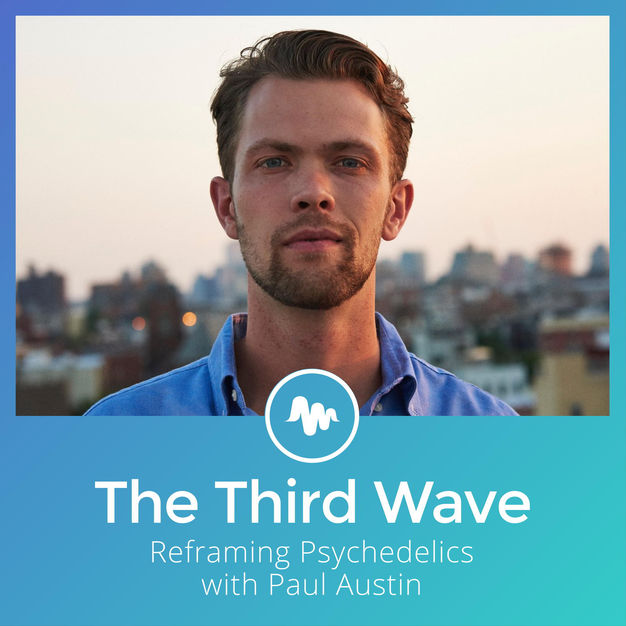 The Third Wave
The Third Wave
 Psychedelic Salon
Psychedelic Salon
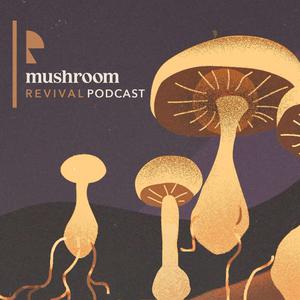 Mushroom Revival Podcast
Mushroom Revival Podcast
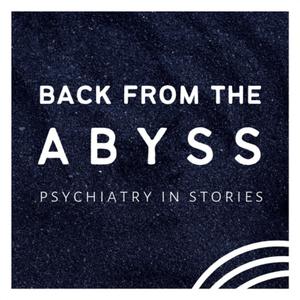 Back from the Abyss: Psychiatry in Stories
Back from the Abyss: Psychiatry in Stories
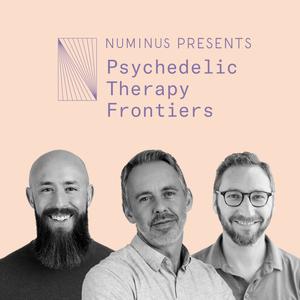 Psychedelic Therapy Frontiers
Psychedelic Therapy Frontiers
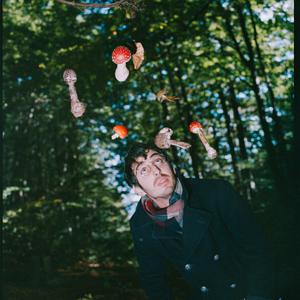 The Hamilton Morris Podcast
The Hamilton Morris Podcast